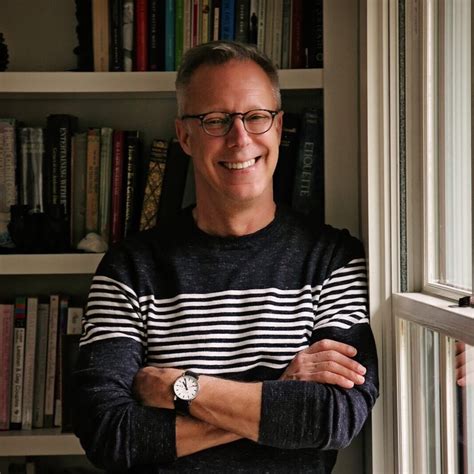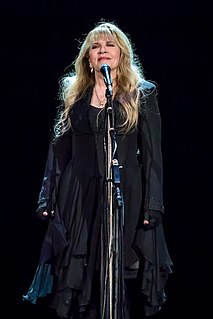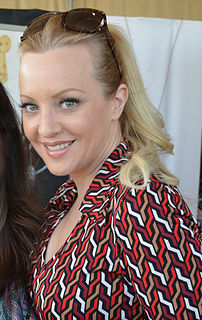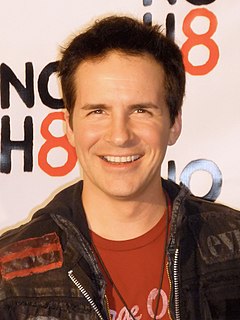A Quote by David C. Driskell
I think my criticism of the Pentecostal tradition that I heard with my sister's church was that it wasn't always audible. You couldn't quite figure out what was going on. And then, the people would very often do what they call speaking in tongues and I didn't know what they were saying. My father used to always say that if it can't be understood, then it's not the good news or not the gospel.
Related Quotes
When I started out, maybe because I did Thelma & Louise early on - but people were always asking, "Are things better for women now?" I would say, "Yeah, I think so. It seems like it." Then a few years in, I started saying, "I think so. I'm getting a lot of good parts, but I don't know." Then eventually, I was like, "Google it. I don't know, but it doesn't seem great."
The gospel is only good news if it gets there on time. I think if we don't deliver this message, it's negligence of the highest order. It would be like if you were walking down the street and a house was on fire and you heard screams coming from inside and you just kept walking. How irresponsible is that? At the very least, call 911 but better yet, you might run in and try to save the people.
If the gospel isn't good news for everybody, then it isn't good news for anybody. And this is because the most powerful things happen when the church surrenders its desire to convert people and convince them to join. It is when the church gives itself away in radical acts of service and compassion, expecting nothing in return, that the way of Jesus is most vividly put on display.
It has always been like that with changes. In 1913, we established divorce as a right for women in Uruguay. You know what they were saying back then? That families would dissolve. That it was the end of good manners and society. There has always been a conservative and traditional opinion out there that's afraid of change. When I was young and would go dancing at balls, we'd have to wear suits and ties. Otherwise they wouldn't let us in. I don't think anyone dresses up for dancing parties nowadays.
It's true that I don't think I'd be a good director. If I were a director, I'd try to hire the best people I could and then leave them alone. I don't know much about cameras or lighting, so I'd make sure that I had a really good cameraman who understood lenses and lighting, and I say to him, "This is the scene we have to shoot and this is what I think it should be, you go do it." Same with actors. But really, very good directors who know everything do basically the same thing. They hire you and then they leave you alone.
You can't just be a wimp and then a year and a half or two years later decide to not be a wimp anymore. Because people will always treat you like a wimp once they have decided that's what you are. You have to be strong and tough and intelligent and smart and kind of plan out what you're going to say and know who you are. So that people will get that right away. Because then they're always going to be great to you. And they're always going to treat you with respect.
Growing up, I was the weird, theatrical kid who always tried to make people be in my plays. I've always loved comedy, but when it came time to figure out what I was going to go to school for, my parents were like, "Acting?! I don't think so. No." It took me a while to get the courage to pursue it. I had to do it in secret for a little bit, and then when I got married and was out on my own, I went for it.
I've loved hip-hop all of my life, but there came a time in my life when my entire life had a shift: where, before, I was just kind of going to church every now and then; then, there was an actual change, where I actually understood who Jesus was, actually understood the message of the Gospel, and my entire life changed.
She laughed softly. "Therapy isn't so much about what I think as you do." "Then why do it at all?" "Because we don't always know what it is we're thinking or feeling. When you have a guide, it's easier to figure things out. You'll often discover that you already know what to do. I can help you ask questions and go places you mihgt not have on your own." "Well, you're good at the qujestion part." I noted dryly.








































